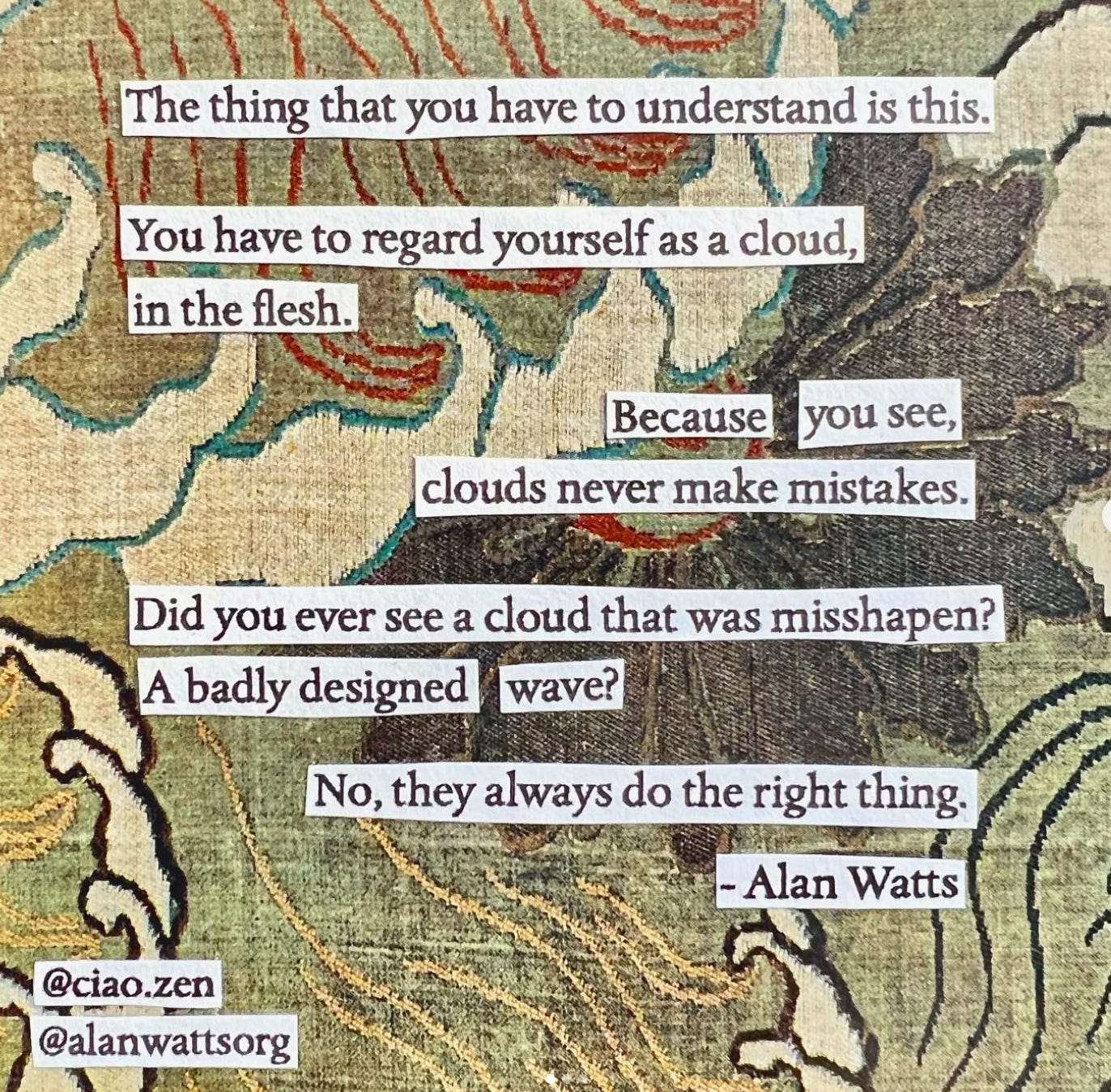It’s so rainy here on the island. The swan song of spring.
All the daffodils have died back and the lupines have risen and taken their place. My lilac enfleurage project is complete and the fat has captured the essence of the lilac so beautifully in its subtleness — sweet, creamy, hope springing eternal, the subtle and the sacred are sisters, etc.
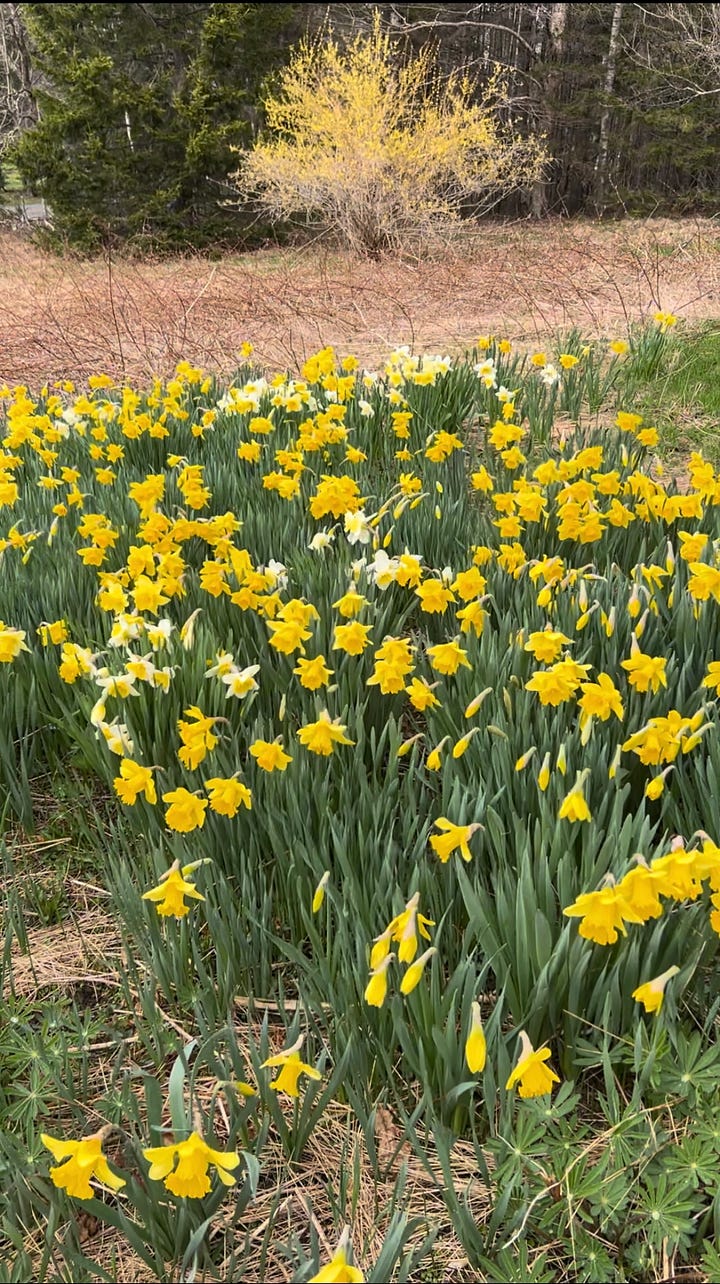
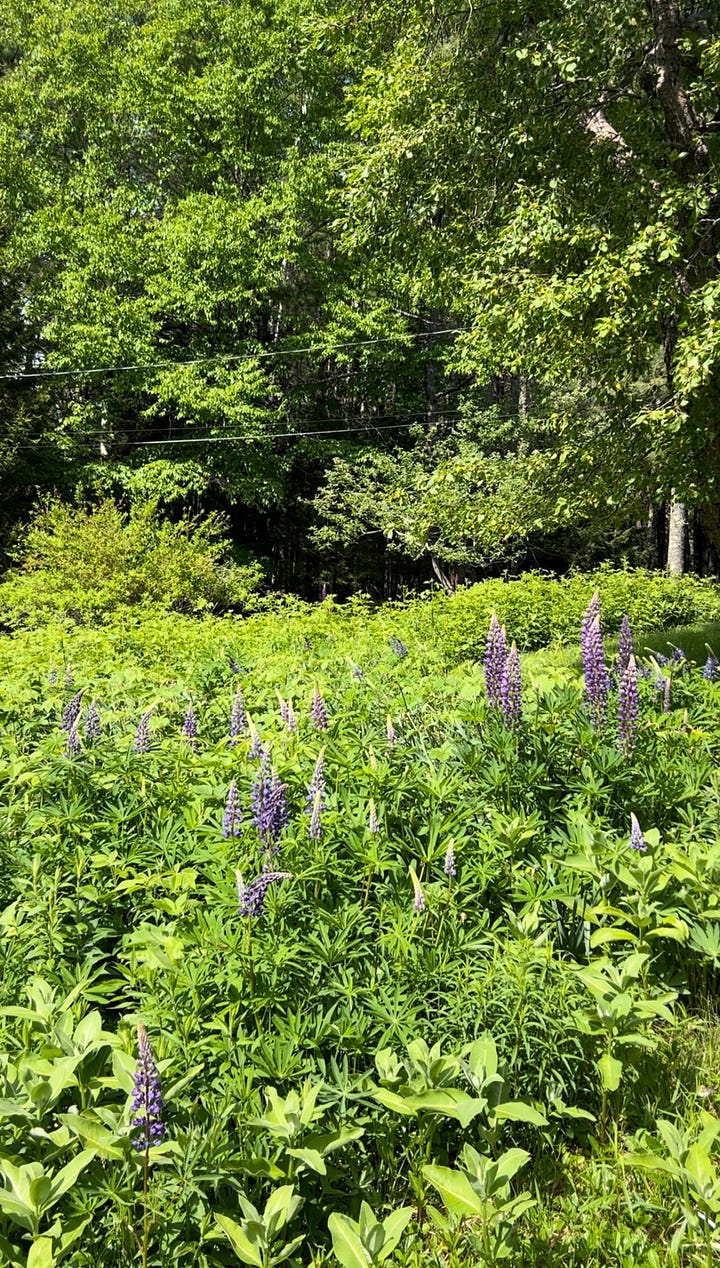
The beach roses are in full bloom and while waiting for the ferry yesterday I collected as many loose petals as I could while the thunder rolled in, seaweed and wet grass scenting the scene. I made a rose hydrosol in the evening and it turned out more perfect than I could have hoped.
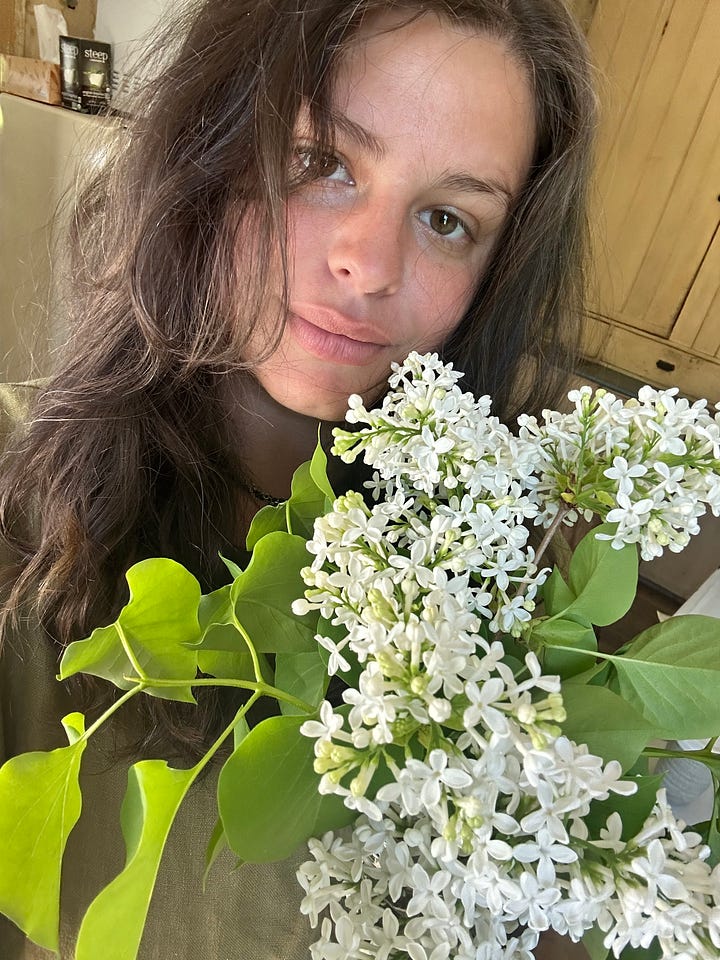

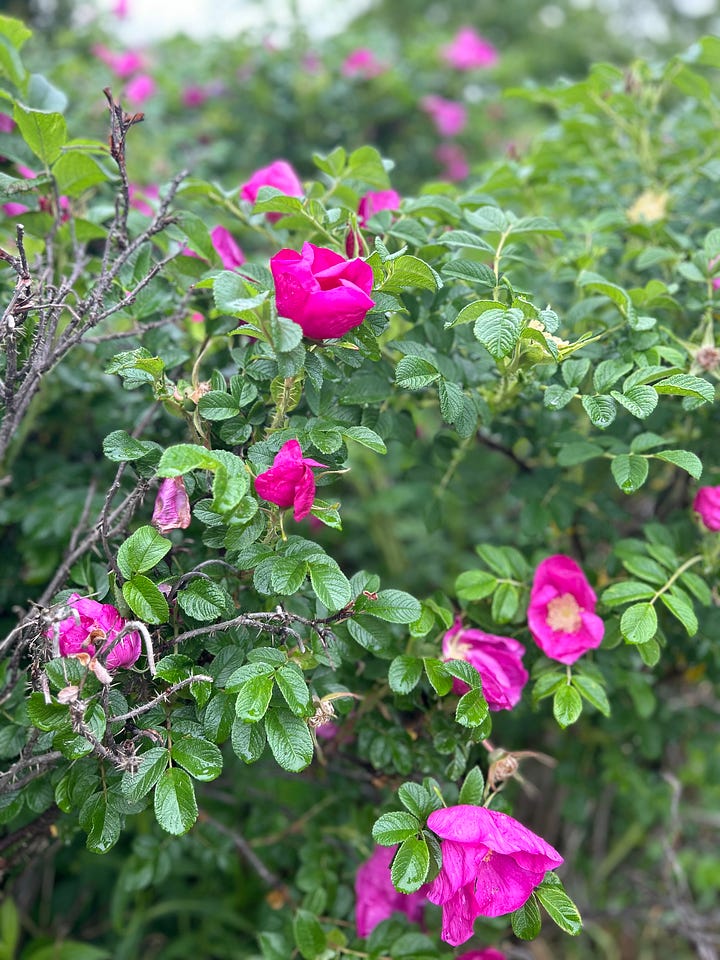

Here in Maine, I am living a sort of dream life I didn’t know I wanted until the end of last year, and even then it was heavily a divine sort of merging and guidance. I think that’s why so many manifestation practices are bewildering to me… do we even know what we want? Are our wants even authentically ours? What we wanted then is not what we want (or need) now; things we desire may be from the past, not even current with who we are in this now moment on this timeline.
Once we’ve done the work of clearing out the desires that aren’t ours (which I had to do a lot before coming to Maine — Maine influencers abound ;), what remains I think is a potent, raw presence and openness. The desires we may carry become more grounded yet open to a sort of merging with the greater Will beyond our imagination or conception.
There is intentionality, planning, and experiences we want to have and to hold and to share, and yet what’s really running the show is divine timing, our subconscious minds and desires, and cosmic fate. The unseen is as ever real as the tangible.
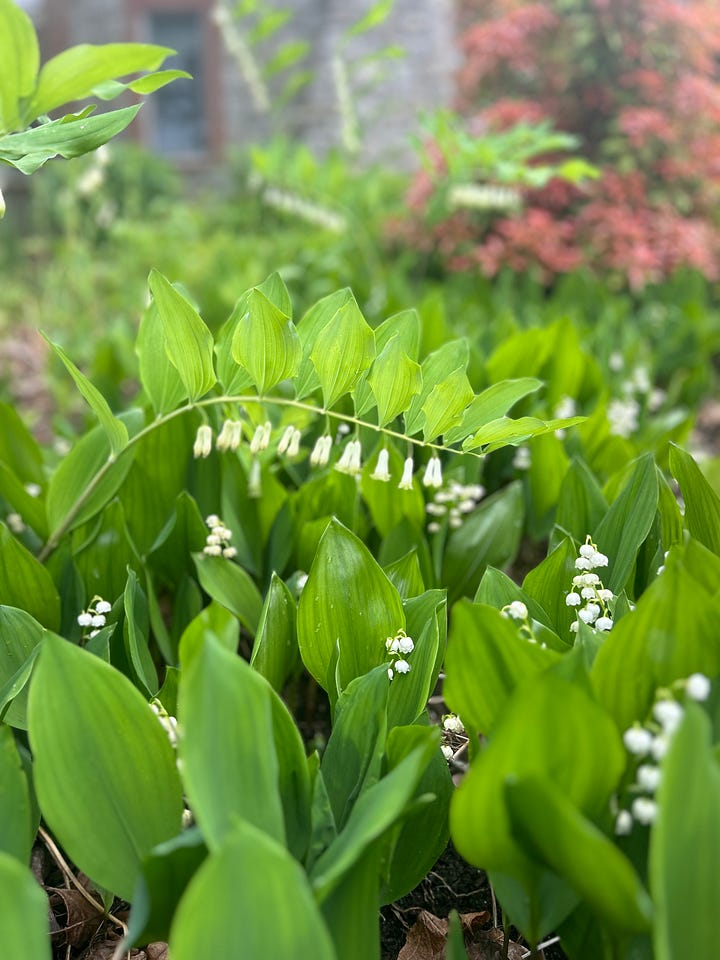
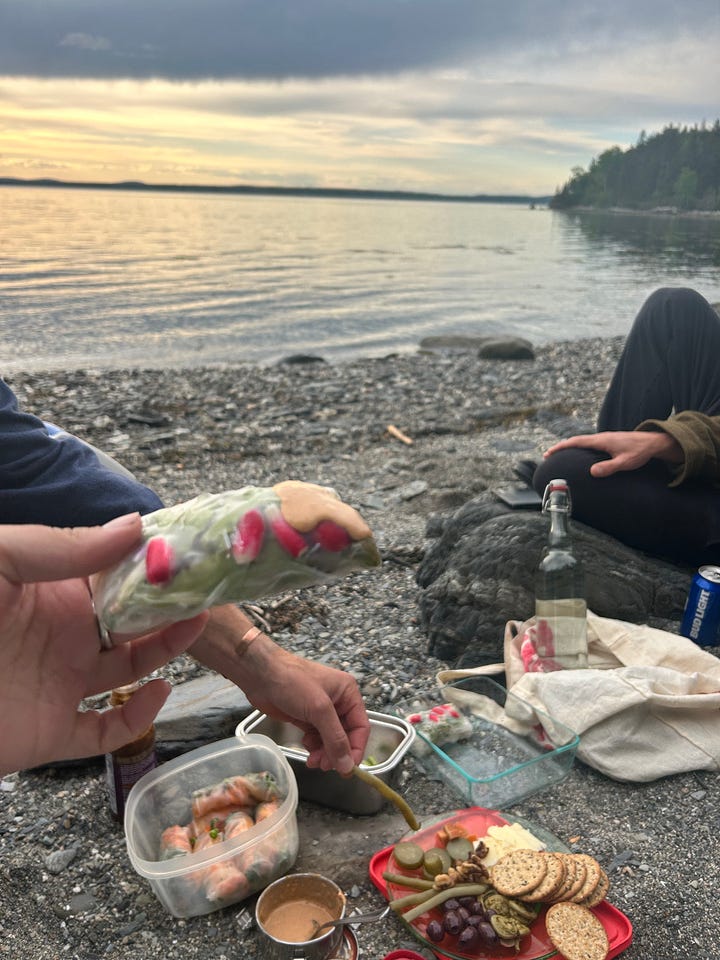

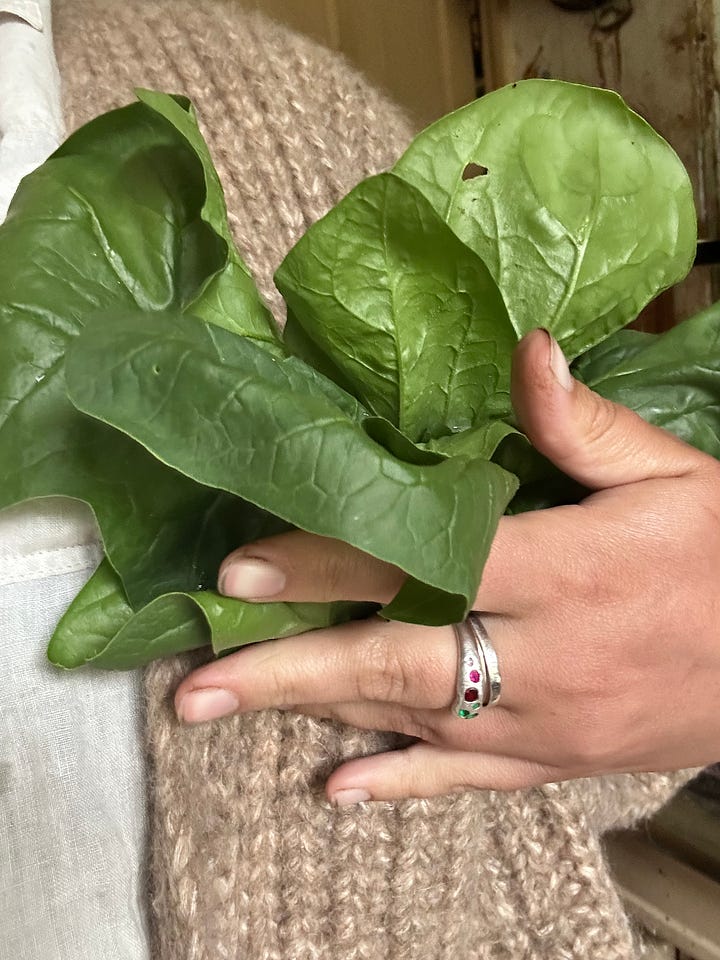
Tangentially, I am obsessed with the raw humanness in apocalyptic storylines and how they transcend any kind of meek desire for what’s not real.
It’s simply vehement survival — it’s the most human we could ever be in making commitments and sacrifices to ourselves and the people around us.
The obvious abound: when the economy collapses and the banks stop working you can’t eat money.
You can’t eat bank cards, Venmo payments, or Bitcoin. The friends and online “community” we formed on the internet cease to exist in the face of reality and survival (and no internet). Who are we surrounded by? What skills do we have?
Who are we and what do we know to be true despite everything we know being stripped away?
I often think of the outstanding show Station Eleven (didn’t like the book). Amid strangers’ fated paths and death all around, can you still make art at the end of the world?
While Station Eleven is a sprawling muti-timeline and character-heavy show, the moments that stick out the most through time are the “choiceless choice” moments where the fate of the character is forever aggrandized in a split moment to the viewer.
In the show, Jeevan Choudry is a city boy unfulfilled with his work and personal life who feels like a lame turd compared to his doctor sister and scientist brother. On the night of the outbreak, he encounters Kirsten a young child actor in a play he had been watching that very night, and the course of their lives is forever changed and linked.
I’m fast-forwarding a lot here but when Jeevan’s leg is severely injured out in the woods he is separated from Kirsten, their fates drastically changing once more, and brought to a “birthing center” that was formally some sort of Dollar Tree to heal and take time to recover.
He recovers (but a lifelong limp remains) and slowly finds himself becoming more and more of a helping hand in this center full of birthing women and babies in a post-apocalyptic world. By the end of this episode, Jeevan is essentially running the place, and by the end of the series, we see him as a traveling town doctor. A healer.
Twenty years later when they reunite, a now-adult Kirsten fondly looks at Jeevan, the stranger who cared for her so gently when the world fell apart, and says, “I was never scared when I was with you.” “I was always scared,” he replies.
I think of the mythic figure Chiron who was never able to heal his wounding but was a profound healer to others. Jeevan represents this archetype of the wounded healer finding purpose through pain so beautifully. A choiceless choice.
Chiron holds a special place in my heart and in my natal chart as well, prominently aspecting both my Ascendant (how we show ourselves to the world/how we’re perceived) and my Midheaven (the type of legacies we leave).
My life has been a steady stream of stripping away of what’s not real, despite the pain. A choiceless choice in becoming more of myself. In that, I hope there is benefit to those around me, too.
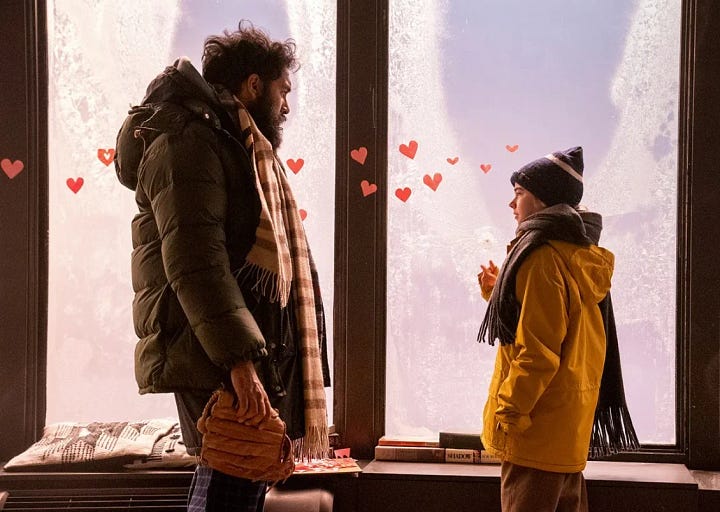
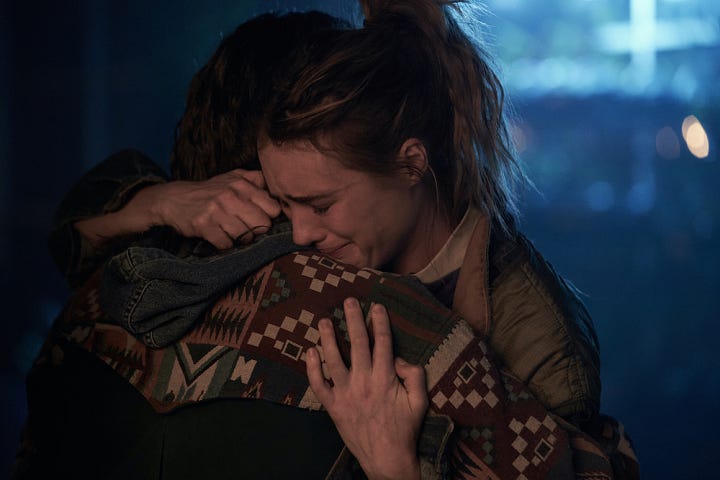
Perhaps randomly, I also couldn’t help but think of Alan Watts.
Prominent mystic and spiritual teacher here in the West, It’s said he died an alcoholic. While that turns many off to his teachings on spirituality, it only made him seem ever more human and real to me. It’s what draws me to mythic gods and goddesses, who are most certainly not saintly but rather completely fallible. And in that, we see ourselves, living as it were all meant to be — in a spiral, a dance.
This realllllly upsets people by the way — to say it’s ok to make mistakes, to fuck up, and to own it. Notice if this brings anything up in you and watch if your system freaks out around the idea of owning your vices and even liking and deriving pleasure from them.
In the HBO show The Last of Us, main character and father Joel is faced with the commitment of transporting teenage girl Ellie across the country in a post-outbreak world that has nearly infected and wiped out all of humanity. Ellie has a type of immunity that came through how she was born (an incredible birthing scene) that may be beneficial to the future of our species if studied and applied.
At the start of the series, Joel’s teenage daughter Sarah was shot and killed in his arms the night the outbreak happened over a decade before the current events take place. As Joel and Ellie make their way across the country and Ellie is set for surgery to find out what makes her immune, something clicks (snaps) for Joel who makes the choiceless choice that he cannot stand by and allow Ellie to be operated on after he is informed by the surgeon that this procedure will undoubtedly kill Ellie and her body will be studied for a cure.
In his trauma and rage, Joel kills every last official in the hospital to steal Ellie off of the operating table and take her to a commune in Montana to live out their days together as a family.
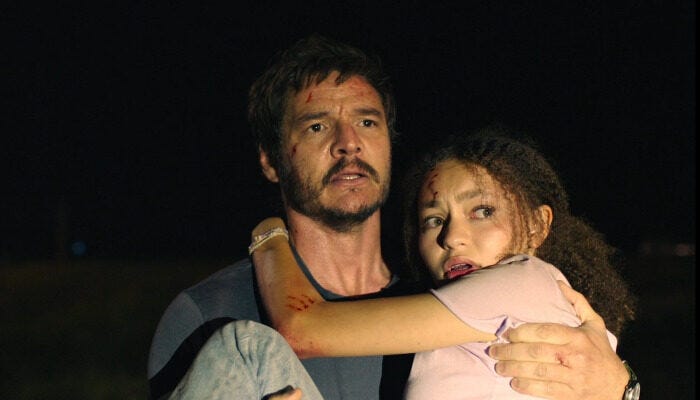

The ending leaves us with deeply disturbing yet all too human questions to ponder:
Would you sacrifice your child for the benefit of humanity?
Would you kill everyone around you and their efforts to save others to keep your only child protected in your arms?
The show left me speechless with these questions for weeks, never having an answer.
A choiceless choice.
I could go on and on with other apocalyptic storylines from my favorites (Arrival, Children of Men, The Road, Annihilation), but while the plots vary drastically the heart is still the same — the choiceless choice of human survival. And, unfailingly, love as a mirror and a portal to deep, profound pain, and vice versa.
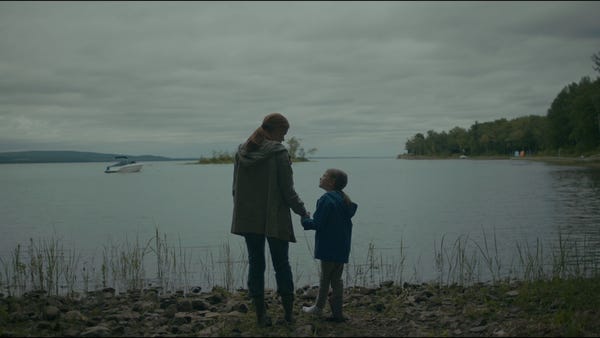
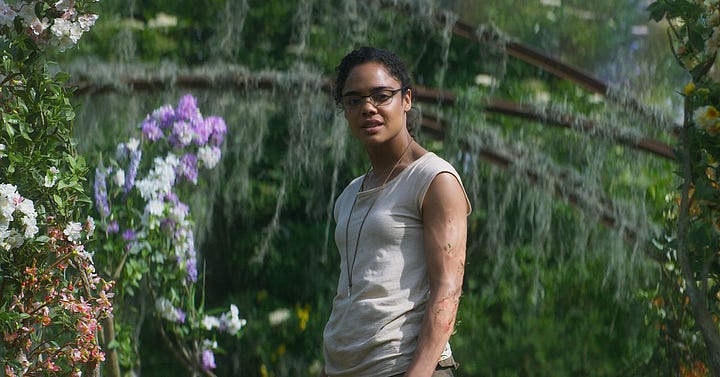
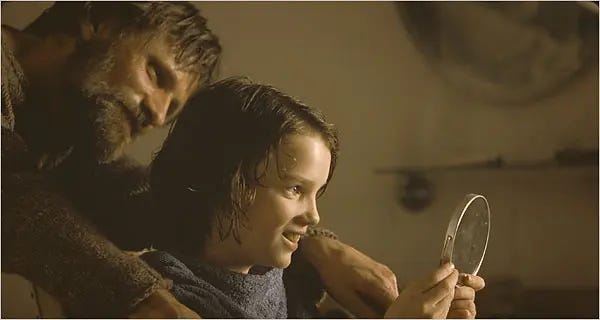

Contemplating the humanness in survival, the humanness in all things.
Tracy






